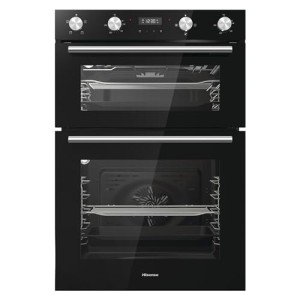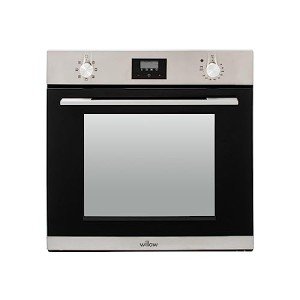10 No-Fuss Strategies To Figuring Out Your Oven Built In
페이지 정보

본문
Understanding Built-in Electric Ovens: A Comprehensive Guide
In contemporary kitchen areas, built-in electric ovens have become a standard function, supplying convenience, efficiency, and a stylish integration into kitchen style. This post intends to inform property owners and cooking lovers about the benefits of built-in electric integrated ovens for sale, essential considerations when choosing one, and maintenance suggestions to make sure long-lasting functionality.
What is a Built-in Electric Oven?
A built-in electric oven is created to be installed within kitchen cabinetry or walls, seamlessly blending into the kitchen's architecture. Unlike standalone ovens, these designs save floor area and can be situated at eye level, assisting in simple access and monitoring while cooking.

Advantages of Built-in Electric Ovens
- Space Efficiency: These ovens utilize vertical space, making them perfect for smaller sized kitchens or those aiming to take full advantage of counter area.
- Aesthetic Appeal: Built-in ovens provide a tidy and contemporary appearance that boosts the kitchen's general style.
- Ergonomics: They are set up at comfy heights, reducing the stress on the back and knees, particularly when packing or dumping meals.
- Advanced Features: Many built-in electric ovens featured state-of-the-art functions like smart controls, convection cooking, and self-cleaning choices, which can make cooking easier and more effective.
- Improved Functionality: Models often include extra functions such as several cooking modes, timers, and temperature probes.
Secret Considerations When Choosing a Built-in Electric Oven
When choosing a built-in electric oven, several aspects must be taken into consideration to ensure it meets your cooking requires and fits within your kitchen layout.
Size and Capacity
Built-in electric ovens typically come in numerous sizes. It's important to determine the assigned area to guarantee an appropriate fit. Here are typical sizes:
- Single Oven: 24 to 30 inches large, suitable for a lot of cooking tasks.
- Double integrated oven and grill: Two separate compartments, enabling you to cook numerous dishes at different temperatures.
- Wall ovens built in: Available in large sizes, matched for comprehensive cooking experiences.
Features
Choosing features that align with your cooking routines is crucial. Think about the following alternatives:
- Convection Cooking: Distributes heat evenly for consistent results.
- Smart Technology: Enables push-button control and preheating through smart device apps.
- Self-Cleaning: Simplifies maintenance and Built in ovens electric cleansing processes.
- Steam Cooking: Adds wetness to meals for better cooking results.
Setup Requirements
Built In Ovens Electric-in electric ovens need sufficient electrical circuitry and ventilation choices. It's advisable to speak with experts throughout the setup stage to meet electrical codes and make sure safety.
Rate Range
The expense of built-in electric ovens can differ considerably from spending plan choices (₤ 600 - ₤ 1,200) to high-end models (₤ 2,000 and above). Consider your spending plan and cooking frequency when making a selection.
| Cost Range | Functions | Best For |
|---|---|---|
| ₤ 600 - ₤ 1,200 | Standard functions, manual controls | Casual cooks |
| ₤ 1,200 - ₤ 2,000 | Convection, clever innovation | Serious home cooks |
| Above ₤ 2,000 | Premium materials, advanced features | Professional chefs or premium cooking enthusiasts |
Upkeep Tips for Built-in Electric Ovens
Guaranteeing that an electric oven runs effectively involves regular maintenance. Here are some useful pointers:
- Regular Cleaning: Wipe down the door and inside the oven after each usage to avoid grease buildup.
- Self-Cleaning Cycle: Utilize the self-cleaning function periodically (if offered). Follow the manufacturer's instructions for maximum performance.
- Check Seals and Gaskets: Inspect the door seals for wear and tear to keep cooking effectiveness.
- Calibrate Temperature: Regularly check and calibrate the oven's temperature level for Built In ovens Electric precision cooking.
- Expert Servicing: Schedule annual upkeep checks with qualified service technicians, particularly for advanced models with many electronic components.
Frequently Asked Questions (FAQs)
1. Are built-in electric ovens more effective than traditional ovens?
Yes, built-in electric ovens often have much better insulation and features like convection cooking that can prepare food faster and uniformly, conserving energy.
2. Can I install a built-in electric oven myself?
While some handy people might select to attempt a DIY installation, it is recommended to employ an expert to ensure safe and compliant installation.
3. How much power does a built-in electric oven usage?
Typically, built-in electric ovens consume in between 2,400 to 5,000 watts, depending upon the model and functions. Always refer to the maker's requirements for accurate figures.
4. Do built-in electric ovens require unique kitchen cabinetry?
Yes, built-in electric ovens need custom-made kitchen cabinetry or wall enclaves that support their weight and allow for proper ventilation. Make sure that the kitchen cabinetry abides by setup guidelines outlined by the manufacturer.
Built-in electric integrated ovens and hobs are a valuable addition to any modern-day kitchen, offering a variety of functions that make cooking more convenient and enjoyable. By understanding the benefits, selection requirements, and maintenance requirements connected with these ovens, consumers can make educated choices that line up with their cooking requirements and lifestyle choices.

- 이전글Seven Explanations On Why Window Repair Near Is So Important 25.05.21
- 다음글A Delightful Rant About Psychiatric Assessment 25.05.21
댓글목록
등록된 댓글이 없습니다.




